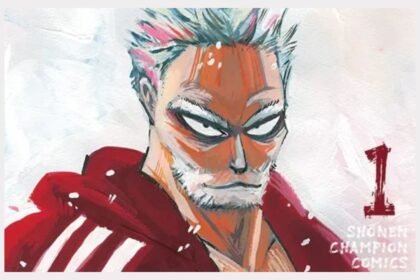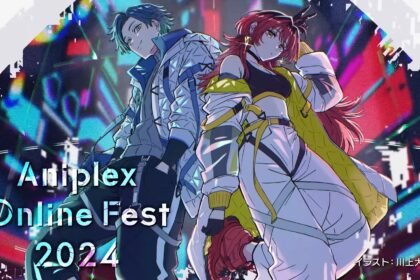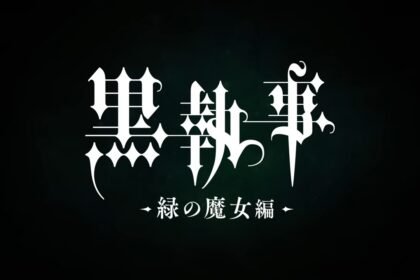In recent years, anime and manga have gained immense popularity worldwide, captivating audiences with their unique storytelling and captivating visuals. These Japanese art forms have transcended cultural boundaries, captivating people from different backgrounds and age groups. While anime and manga are often associated with entertainment, they also serve as powerful vehicles for social commentary. These mediums allow creators to explore and address a wide range of social, political, and cultural issues, providing insightful perspectives that resonate with audiences globally.
Anime and Manga: A Powerful Medium for Social Commentary
Anime and manga possess distinct characteristics that make them particularly effective platforms for social commentary. Firstly, visual storytelling plays a pivotal role in both mediums. The vivid and expressive art styles in anime and manga allow creators to convey complex emotions, societal norms, and cultural nuances. Through the use of striking visuals, artists can depict the subtleties of social issues and invoke emotional responses from viewers. Whether it’s depicting the horrors of war or the struggles of marginalized communities, the visual impact of anime and manga amplifies the potency of their commentary towards real-life issues.
Furthermore, anime and manga encompass a diverse range of genres and themes, enabling creators to explore various aspects of society. From science fiction and fantasy to romance and drama, these mediums cover a broad spectrum of narratives. Each genre offers a unique lens through which commentary can be expressed. For example, dystopian settings in anime often serve as metaphors for real-world political and social unrest, highlighting the flaws and dangers of authoritarianism. On the other hand, slice-of-life manga can shed light on everyday struggles, providing related commentary on issues like mental health, family dynamics, and societal expectations.
The cultural context of anime and manga also contributes to their effectiveness as vehicles for social commentary. These art forms originate from Japan, a country with its own distinct socio-political landscape and rich cultural history. As such, anime and manga often reflect Japan’s societal values, norms, and historical events. However, their themes and messages have a universal appeal, allowing viewers from diverse backgrounds to connect with the commentary portrayed. This cross-cultural resonance makes anime and manga powerful tools for fostering understanding and empathy among global audiences.
Gender Roles and Feminism in Anime and Manga
One of the recurring themes in anime and manga is the exploration and challenge of traditional gender roles. These mediums often feature strong and complex female characters who defy societal expectations. Unlike their passive counterparts in some other forms of media, female protagonists in anime and manga are frequently portrayed as capable, independent, and influential individuals. They serve as role models for young viewers and challenge the notion that women are limited to certain roles or capabilities.
Moreover, anime and manga subvert gender stereotypes by showcasing diverse representations of masculinity and femininity. Characters may possess traits that defy traditional gender norms, blurring the lines between what is considered “masculine” and “feminine.” This fluidity allows for more nuanced and realistic portrayals of gender identities and expressions.
Additionally, anime and manga provide a social commentary platform for the representation of LGBTQ+ characters and relationships. These mediums have been at the forefront of LGBTQ+ visibility and acceptance, featuring storylines that explore same-sex relationships, transgender experiences, and non-binary identities. By depicting diverse sexual orientations and gender identities, anime and manga contribute to the ongoing dialogue surrounding LGBTQ+ rights and representation.
Further Readings: Anime and Manga’s Exploration of Social Issues and Inequality
Political and Societal Commentary & Critiques in Anime and Manga
Anime and manga have a long history of addressing political and societal issues, often offering poignant critiques of the status quo. These mediums provide a means for creators to voice their concerns about government corruption, social inequality, and the consequences of unchecked power.
In many anime and manga series, authoritarianism is a recurring theme. These narratives depict oppressive regimes, dystopian societies, and the struggles of individuals who resist against oppressive systems. By presenting these cautionary tales, anime and manga shed light on the potential dangers of concentrated power and the importance of safeguarding individual freedoms.
Furthermore, social inequality and discrimination are prevalent topics explored in these mediums. Anime and manga often tackle issues such as class disparities, racial discrimination, and the marginalization of certain groups. By portraying these societal challenges, creators aim to raise awareness and promote empathy among viewers. These narratives encourage critical reflection on the real-world consequences of prejudice and discrimination.
Moreover, anime and manga provide a platform for commentary on war, violence, and the human cost of conflict. Through both historical and fictional narratives, these mediums explore the devastating impact of war on individuals and communities. They depict the physical and psychological toll of violence, challenging the glorification of warfare and urging viewers to contemplate the true cost of armed conflicts.
Environmentalism and Nature Conservation in Anime and Manga
Another significant area of social commentary in anime and manga is the representation of environmental themes. These mediums often depict the consequences of human activity on nature and advocate for ecological preservation and sustainability.
Anime and manga frequently portray the destructive impact of pollution, deforestation, and overconsumption. They highlight the importance of environmental stewardship and the urgency of addressing climate change. By showcasing the consequences of environmental degradation, these narratives serve as a call to action, urging viewers to reflect on their own relationship with the natural world.
Moreover, anime and manga explore the intricate bond between humans and nature. They emphasize the interconnectedness of all living beings and the need for harmonious coexistence. Through fantastical narratives and allegorical storytelling, these mediums convey the message that humans are not separate from nature but an integral part of it. By promoting a deeper understanding of our place in the ecosystem, anime and manga inspire viewers to become more environmentally conscious and take steps towards conservation.
Historical and Cultural Social Commentary in Anime and Manga
Anime and manga provide a unique lens through which to explore history and culture. These mediums often delve into historical events and periods, shedding light on lesser-known aspects of the past and presenting alternative perspectives.
Historical anime series transport viewers to different time periods, meticulously recreating historical settings and events. They offer glimpses into the lives of historical figures and depict pivotal moments in history with artistic flair. By intertwining fictional narratives with real-world events, anime brings history to life and encourages viewers to engage with the subject matter in a compelling and accessible way.
Additionally, anime and manga play a vital role in preserving and reinterpreting traditional cultural elements. They celebrate traditional arts, customs, and folklore, ensuring that these aspects of culture are passed down to future generations. Furthermore, anime and manga often reimagine traditional stories and legends, revitalizing them for contemporary audiences. This fusion of old and new allows for the exploration of cultural identity and the preservation of cultural heritage.
Furthermore, anime and manga reflect societal values and norms, providing insights into the thoughts and beliefs of a particular time and place. They serve as a mirror that reflects the prevailing attitudes and challenges of society. By studying the cultural commentary embedded in these mediums, researchers and enthusiasts can gain a deeper understanding of social dynamics and the evolution of cultural norms.
Social Commentary about Economic and Technological Critiques in Anime and Manga
Anime and manga also offer commentary on economic systems and technological advancements, raising questions about their impact on society.
Many anime and manga series critique capitalism and consumerism, examining the consequences of a profit-driven society. They explore themes of wealth disparity, exploitation, and the loss of human connection in the face of materialism. By presenting alternative visions of economic systems, these narratives encourage viewers to question the status quo and consider more equitable and sustainable models.
Moreover, anime and manga delve into the ethical dilemmas posed by advanced technology. They explore the potential benefits and risks of scientific advancements and the ethical implications of their use. From artificial intelligence to virtual reality, these mediums provide thought-provoking narratives that examine the boundaries of human ingenuity. These mediums also discuss the responsibilities that come with technological progress.
Conclusion
In conclusion, anime and manga serve as powerful vehicles for social commentary, transcending their role as mere forms of entertainment. These mediums possess unique characteristics that make them highly effective in conveying insightful messages and sparking critical discussions. Through visual storytelling, diverse genres, and cultural context, anime and manga tackle a wide range of social, political, and cultural issues.
From challenging traditional gender roles and advocating for feminism to critiquing political systems and addressing societal inequalities, anime and manga offer a platform for creators to express their thoughts and concerns. These mediums shed light on pressing issues such as environmental degradation, war, discrimination, and the consequences of technological advancements. By doing so, they encourage viewers to reflect on these topics, question the status quo, and ultimately promote positive change.
Furthermore, anime and manga have a global appeal, transcending cultural boundaries and fostering understanding among diverse audiences. They provide a unique perspective on historical events, cultural heritage, and societal values, enriching our understanding of the world. As we continue to appreciate and explore the social commentary embedded in anime and manga, we recognize the profound impact that art and storytelling can have on shaping the collective consciousness of society. So, let us embrace these mediums as not only sources of entertainment. But also as catalysts for social awareness, empathy, and progress.













